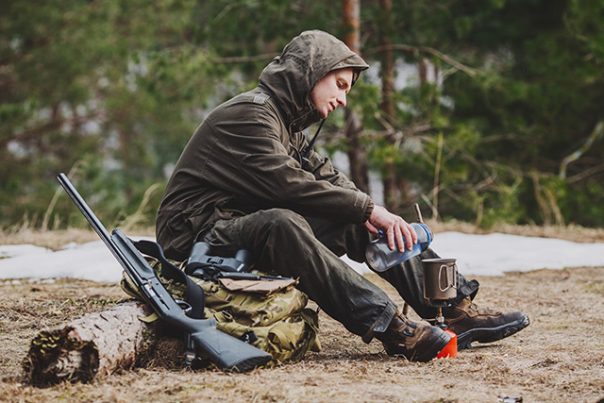Dealing with isolation when SHTF
Monday, March 11, 2019 by Mary Miller
http://www.bugout.news/2019-03-11-dealing-with-isolation-when-shtf.html

There is certainly an appeal to the common idea of the lone-wolf prepper, braving the harshest of challenges with only himself and his trusted survival cache to depend upon. Without a doubt, self-reliance is one of the most important skills that you can possibly learn in case SHTF. However, in reality, the long-term lack of social interaction can have negative effects on one’s mental fortitude. Humans are naturally social beings. Extended periods of isolation are simply not healthy for an individual’s mental health and well-being. Here are a few things you need to consider when dealing with long-term isolation. (h/t to BackdoorSurvival.com)
Assess the potential risks of leaving your home or bug-out location
In certain survival situations, such as a pandemic or societal collapse, going out when not necessary could potentially be dangerous or even fatal. There may be times when complete isolation may be crucial to your survival. If you have to leave your home or bug-out location for any reason, you will have to weigh the potential benefits against the possible risks. Anyone you meet could either help you or be a potential threat. What would you need to go out for? Do you need food or medical supplies? Stock up on these even before SHTF to avoid running out of supplies. This will lessen the need to leave the protection of your home.
Consider the work that needs to be done
If you follow the “lone wolf” mentality, you will need to do everything yourself. From hunting, foraging, cooking, and cleaning, to managing your other resources, you will have no other choice but to do all these things on your own. This means that you should be both skilled and knowledgeable enough in these survival aspects that you can do them without assistance. You won’t have a safety net of having other people to fulfill the necessary survival tasks for you, if you are somehow unable to do so. You must also understand that if anything happens to you, you won’t be able to get the help you need, if and when you need it. Create contingency plans that you can fall back on in case this happens.
You will miss your friends and family
Another thing that can eat away at your mental resilience is your need for human contact. It is a natural human instinct. In dire circumstances, people often turn to their loved ones for emotional support. If you live in complete isolation, you won’t have that privilege. What’s more is that you might find yourself constantly worrying about the safety and well-being of your friends and family members. You might miss their companionship. The lack of social contact might even negatively affect your motivation to survive. Alternatively, knowing that your loved ones might still be out there can give you purpose to survive so that you can see them again. (Related: Loneliness and social isolation may be a greater public health hazard than obesity, researchers say.)
You will miss many of the conveniences of modern life
Resources are scarce when SHTF. The daily comforts of electricity, running water, and heating or cooling systems might suddenly vanish overnight, and you will have to cope with the lack of these with no one else to help you. Such living conditions could drive an unprepared person over the edge. You can avoid this fate by creating a home environment that is conducing to keeping you sane. Your physical health is linked to your mental health, so make sure to have systems in place that can make your situation more manageable. Harness alternate sources of energy, such as solar power. Acquire possible sources of water and learn to purify them for drinking.
Sources include:
Tagged Under: Tags: bug out, coping mechanism, isolation, mental resiliency, Motivation, off grid, preparedness, Preppers, prepping, self sufficiency, self-reliance, SHTF, survival, survivalist

